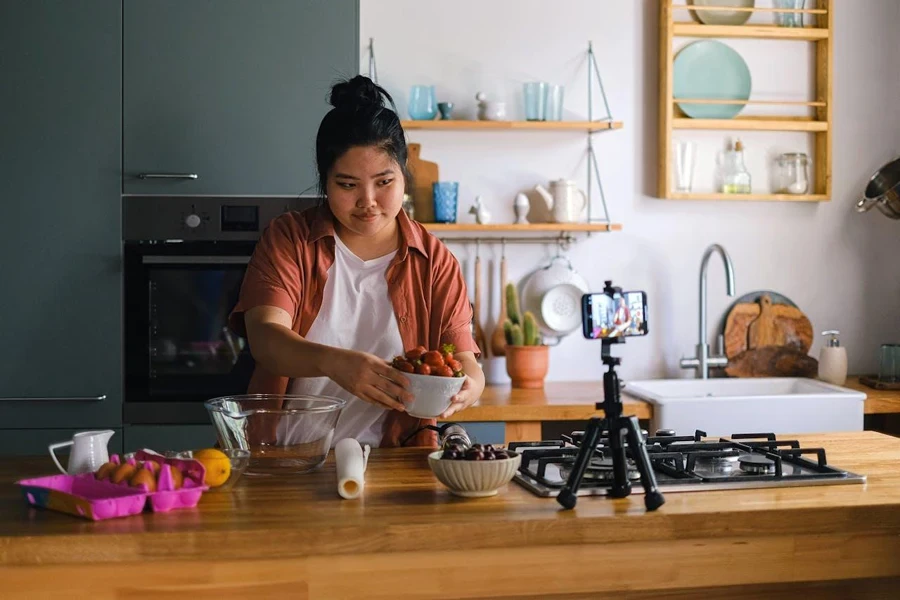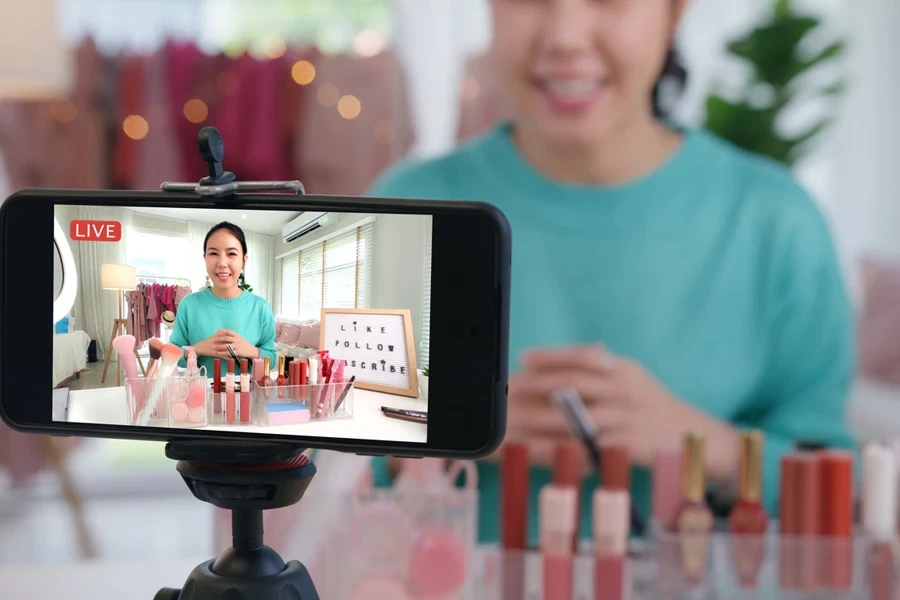What’s the first thing that comes to mind when you think of brand partnerships and influencers? For most people, it’s the people that we regularly see on billboards and in our targeted social media ads, which, for the most part, tend to be celebrities. However, not all influencers are celebrities, and they don’t have to be to be effective.
According to a report by Influencer Marketing Hub, influencer marketing has grown into a US $21.1 billion industry, and non-celebrity influencers are taking a big slice of the market. Here, we will discuss the benefits of partnering with non-celebrity influencers to help your business learn more about the best potential partners.
Table of Contents
What is influencer marketing?
Who is a non-celebrity influencer?
Benefits of partnering with non-celebrity influencers
Final thoughts
What is influencer marketing?

Influencer marketing is a form of marketing in which brands collaborate with individuals who have a dedicated and engaged following on social media platforms or other online channels.
The goal of influencer marketing is to leverage the influencer’s credibility and reach to increase brand awareness, drive engagement, and generate leads or sales for your business. By tapping into the influencer’s existing audience and social influence, brands can effectively target and connect with their desired demographic in a more authentic and relatable manner than traditional advertising methods.
As we mentioned, influencers don’t have to be celebrities; they just have to have some sort of influence with your target audience. There are many benefits of partnering with non-celebrity influencers over celebrities, so let’s get into it.
Who is a non-celebrity influencer?
The lines between celebrities and influencers have become blurred because of social media. So, what is the difference? Generally, celebrities have gained fame through traditional media or other high-profile endeavors but also have a social media following. Their social media following tends to be large and more broad, which can lead to lower engagement rates and a less niche audience.
But what about social media influencers who have exceptionally large followings? Some influencers have gained a large social media following (over 100,00 followers or more) and become mini-celebrities in their particular niche. While they may be great to partner with, they aren’t necessarily who we are talking about when discussing non-celebrity influencers because partnering with them will still typically come with a reasonably hefty price tag.
So, when we say non-celebrity influencer, we mean micro-influencer, an influencer with a smaller, more engaged following in a highly specialized niche.
Benefits of partnering with non-celebrity influencers
Here are the numerous benefits of partnering with non-celebrity influencers:
1. Authenticity over glamor

Celebrity influencers undoubtedly have massive followings, but their endorsements often appear staged or insincere. On the other hand, non-celebrity influencers have smaller but highly engaged audiences. Their authenticity and genuine passion for their niche make them relatable and trustworthy to their followers. According to a survey by Collective Bias, 30% of consumers are more likely to buy a product recommended by a non-celebrity blogger.
Imagine a skincare brand partnering with a micro-influencer who shares their journey of struggling with acne. Their audience resonates with their authentic journey to clear skin, making the product recommendations more compelling than a celebrity endorsement.
2. Niche expertise and targeted reach

Non-celebrity influencers often specialize in specific niches, allowing brands to target precise demographics and interests. Whether fitness, fashion, gaming, or photography, these influencers have in-depth knowledge of their niche and can provide valuable insights to their followers.
For example, a camping gear company collaborating with an outdoor enthusiast who documents his wilderness adventures on social media would be a fantastic partnership. Their audience comprises avid campers and nature lovers, making them the perfect partner to showcase the brand’s products in action.
Additionally, it’s interesting to note that research from Influencer Marketing Hub shows that engagement rates on Instagram decrease as follower count increases, indicating that smaller influencers often have more engaged audiences.
3. Cost-effective partnerships
Compared to celebrity endorsements, partnering with non-celebrity influencers is often more budget-friendly for brands, especially those with limited marketing resources. Micro-influencers are more likely to be open to negotiation and may be willing to collaborate in exchange for products or modest compensation, particularly for brands that align with their values.
Working within a strict marketing budget? Learn more about getting started with influencer marketing on a budget.
4. Building genuine relationships

Non-celebrity influencers often interact directly with their followers, fostering genuine relationships. Compared to celebrities, who may have less personal engagement and likely teams of people engaging with their followers on their behalf, micro-influencers have the time and inclination to respond to their audience’s comments, messages, and questions.
For example, a sustainable fashion brand partnering with a micro-influencer who shares their eco-friendly lifestyle tips and ethical fashion choices is an excellent fit because the influencer engages with their audience. They may answer queries about sustainable brands and encourage them to join in making environmentally conscious decisions.
According to a report by Edelman, 63% of consumers trust influencers more than brands, emphasizing the importance of building authentic relationships between influencers and their followers.
5. Flexibility and creativity
Non-celebrity influencers are often more flexible and open to creative collaborations that align with their personal brand and values. This flexibility allows brands to co-create content that feels organic and resonates with the influencer’s audience, leading to higher engagement and brand loyalty. According to a survey by Econsultancy, 61% of marketers believe that micro-influencers create more authentic content than celebrity influencers.
An example of taking advantage of this type of creativity with a beauty influencer could be partnering with a makeup enthusiast who hosts Instagram live tutorials featuring the brand’s products. The influencer’s interactive sessions allow their audience to ask questions in real time, creating an immersive and personalized brand experience.
Final thoughts
Finding an influencer that is aligned with your brand and has a specific niche audience that is interested in your products is much more important than the size of the following the influencer has. As you can see, there are many benefits to partnering with smaller, non-celebrity influencers. So, before you get started thinking about who the best influencer is for your business, take the time to consider your goals and your target audience.




